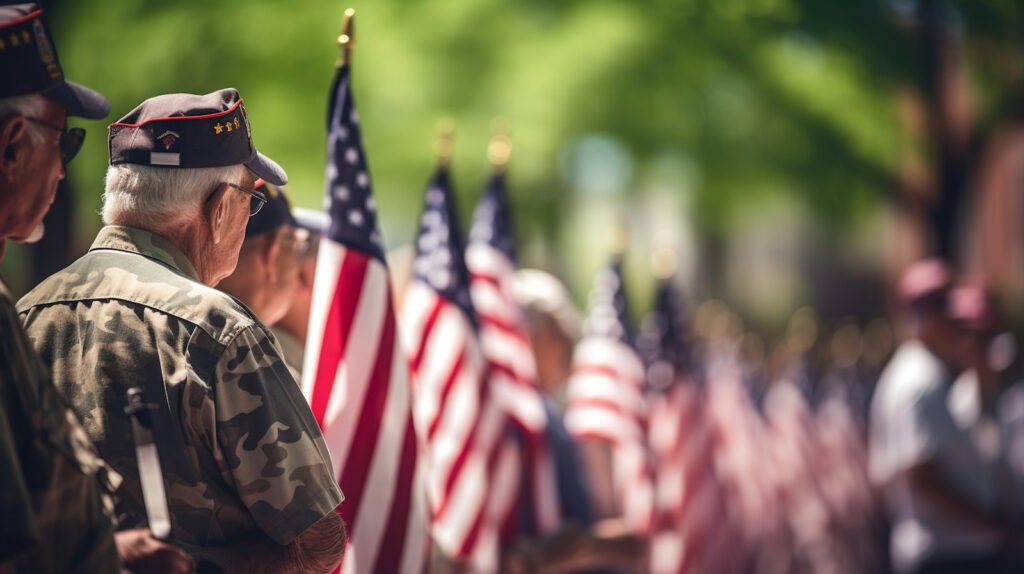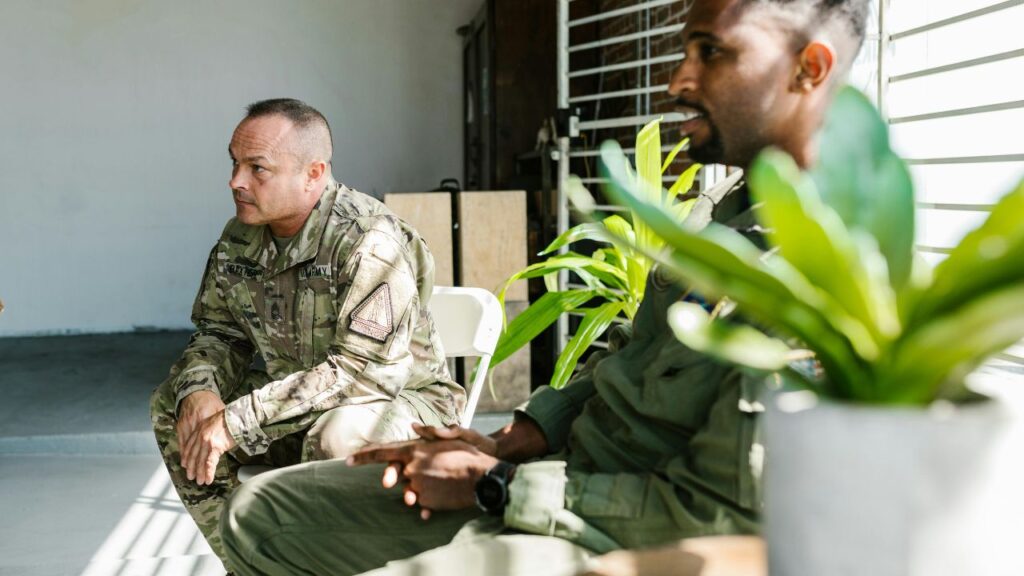Military service creates unique experiences that can significantly impact mental health and addiction risk. Veterans face higher rates of substance use disorders than the general population, often struggling with issues that civilian-focused treatment programs may not fully address. Understanding the specific challenges veterans encounter and the specialized approaches that work best for this population is crucial for effective addiction treatment.
The warrior ethos that serves military personnel well in combat can sometimes become a barrier to seeking help in civilian life. Many veterans struggle with admitting vulnerability, asking for support, or acknowledging that problems exist—attitudes that served them in military environments but can prevent them from accessing needed treatment for addiction and related issues.
Unique Challenges Facing Veterans
Veterans experience addiction differently from civilians due to the distinctive nature of military service and the transition to civilian life. Combat exposure creates lasting changes in brain function and stress response systems that can increase vulnerability to addiction long after service ends.
Post-traumatic stress disorder occurs at significantly higher rates among veterans, particularly those who experienced combat or military sexual trauma. PTSD symptoms like hypervigilance, emotional numbing, sleep disturbances, and intrusive memories often drive veterans to use alcohol or drugs as a form of self-medication.
The military culture emphasizes strength, self-reliance, and pushing through pain—physical and emotional. While these qualities are essential in military settings, they can prevent veterans from recognizing when they need help or from seeking appropriate treatment for developing substance use problems.
Transition challenges compound addiction risk as veterans adjust to civilian life after highly structured military environments. The loss of clear mission, strong brotherhood bonds, and defined purpose can create identity confusion and depression that increase substance use vulnerability.
Physical injuries sustained during service often require pain management that can lead to prescription drug dependence. Many veterans develop opioid addiction after legitimate medical treatment for service-related injuries, creating complex situations where pain management and addiction treatment must be carefully coordinated.
Military sexual trauma affects both male and female veterans and significantly increases addiction risk. The betrayal of trust within military units, combined with institutional responses that may have minimized or ignored the trauma, creates particularly complex treatment needs.

Why Standard Addiction Treatment May Fall Short
Traditional addiction treatment programs, while effective for many people, often miss important elements necessary for successful veteran treatment. The civilian-oriented approach may not address military-specific trauma, cultural factors, or the unique identity challenges veterans face.
Many standard programs lack understanding of military culture, terminology, and experiences. Veterans may feel isolated or misunderstood when their peers and counselors don’t grasp the significance of military experiences or the challenges of transitioning to civilian life.
Group therapy, a cornerstone of most addiction treatment, may feel less effective when veterans are the only military-experienced person in civilian groups. The sense of brotherhood and shared understanding that characterizes military relationships may be missing, reducing engagement and therapeutic benefit.
Traditional trauma treatment approaches may not adequately address combat-related PTSD, which often involves moral injury, survivor guilt, and complex grief that differs from civilian trauma experiences. Veterans may need specialized trauma therapies designed specifically for military-related experiences.
The stigma around mental health treatment in military culture can persist long after service ends. Veterans may resist treatment approaches that feel too civilian-oriented or that don’t acknowledge their military service as a source of strength and identity.
Evidence-Based Approaches for Veteran Addiction Treatment
Effective veteran addiction treatment incorporates specialized approaches that address military culture, trauma, and transition challenges while building on the strengths that military service has developed.
Military-informed therapy recognizes that military service creates both vulnerabilities and strengths. Therapists trained in veteran issues understand how military experiences shape identity, relationships, and coping mechanisms. This knowledge allows them to build on military-developed strengths while addressing areas where service may have created challenges.
Specialized PTSD treatments like Cognitive Processing Therapy (CPT) and Prolonged Exposure Therapy have been specifically adapted for veteran populations. These approaches address combat-related trauma more effectively than general trauma treatments because they understand the specific nature of military trauma experiences.
Veteran-specific group therapy brings together people with shared military experience, creating an immediate sense of understanding and connection. Veterans often engage more readily in treatment when surrounded by others who understand military culture and experiences without explanation.
Military-to-civilian transition counseling addresses the identity and purpose challenges many veterans face when adjusting to civilian life. This specialized counseling helps veterans translate military skills to civilian contexts while building new sources of meaning and connection.
Integrated treatment for PTSD and addiction recognizes that these conditions often co-occur in veterans and require simultaneous treatment rather than addressing each separately. This approach prevents the situation where treating one condition inadvertently worsens the other.
The Role of Military Culture in Recovery
Understanding and leveraging military culture can significantly enhance addiction treatment effectiveness for veterans. The same cultural values that may initially create barriers to treatment can become powerful recovery assets when properly utilized.
The military emphasis on mission accomplishment can be redirected toward recovery goals. Veterans often respond well to treatment approaches that frame recovery as a mission with clear objectives, strategies, and measures of success.
Brotherhood and unit cohesion, core military values, translate naturally to peer support in recovery. Veterans often form strong recovery communities that provide mutual accountability and support long after formal treatment ends.
Military training emphasizes discipline, structure, and following protocols—all valuable assets in addiction recovery. Treatment programs that incorporate military-style structure and clear expectations often see better engagement from veteran clients.
The concept of service before self can be powerful in recovery when veterans find ways to help other veterans or contribute to causes larger than themselves. Many veterans find that service work becomes an important component of their recovery maintenance.
Honor and integrity, fundamental military values, can motivate commitment to recovery when veterans recognize that addiction conflicts with their core beliefs about duty and responsibility.
Family and Relationship Considerations
Military families face unique stresses that can complicate addiction treatment and recovery. Deployment cycles, frequent moves, and the stress of military life often strain family relationships in ways that require specialized attention during treatment.
Military spouses and children develop their own coping mechanisms for dealing with deployment, uncertainty, and the demands of military life. These adaptations may need adjustment as families work together to support recovery and rebuild healthy relationships.
Communication patterns common in military families—direct, mission-focused, emotionally controlled—may need modification to support the vulnerability and emotional openness required for recovery work.
Family therapy for military families requires understanding of military culture and its impact on family dynamics. Therapists need knowledge of deployment cycles, military stressors, and the unique challenges military families face.
Reintegration after treatment involves not just the veteran adjusting to recovery but the entire family adjusting to new dynamics and communication patterns. Family members may need their own support to navigate these changes successfully.
Swift River’s Veterans Program
Swift River’s specialized Veterans Treatment Program recognizes the unique needs of those who have served our country. Our program integrates military-informed care with evidence-based addiction treatment, creating an environment where veterans feel understood and respected while receiving comprehensive care.
Our clinical team includes professionals with military experience and specialized training in veteran mental health issues. This expertise ensures that treatment approaches honor military service while addressing the specific challenges that may contribute to addiction.
Group therapy sessions specifically for veterans create immediate connection and understanding among participants. Veterans often report feeling more comfortable discussing their experiences with others who share military backgrounds and understand military culture without explanation.
We integrate family therapy that addresses the unique dynamics of military families, helping family members understand how military service has affected their loved one and their family system. This approach supports family healing alongside individual recovery.
Our program addresses co-occurring PTSD and addiction simultaneously, recognizing that these conditions often interact in ways that require integrated treatment. Veterans receive specialized trauma therapy alongside addiction treatment, maximizing the effectiveness of both interventions.
The serene setting of our campus in the Berkshire Mountains provides a peaceful environment for healing that many veterans find conducive to processing military experiences and building recovery skills. Outdoor activities and recreational therapy options appeal to many veterans who appreciate physical challenges and outdoor experiences.
The Path Forward for Veteran Recovery
Recovery for veterans often involves not just overcoming addiction but also finding new sources of purpose, identity, and connection in civilian life. Successful veteran addiction treatment addresses these broader challenges while building on the significant strengths that military service has developed.
Many veterans find that recovery becomes a new mission that engages their skills, determination, and desire to serve. The process of overcoming addiction can restore the sense of accomplishment and purpose that may have been missing since leaving military service.
Peer support among veterans often continues long after formal treatment ends. Many veterans develop recovery communities with other veterans that provide ongoing accountability, understanding, and friendship based on shared experiences and values.
Service to other veterans frequently becomes an important component of recovery maintenance. Many veterans find meaning in helping other veterans navigate addiction, mental health challenges, or transition issues, creating purpose while supporting their own recovery.
Veterans who successfully address addiction often become powerful advocates and examples for others still struggling. Their stories of overcoming challenges and finding new purpose inspire hope in veterans who may be struggling with similar issues.
The unique challenges that veterans face in addiction and recovery require specialized understanding and treatment approaches. However, the same qualities that made them effective military service members—courage, determination, loyalty, and service orientation—often become their greatest assets in recovery.
For veterans struggling with addiction, specialized treatment that honors military service while addressing addiction’s complexities offers the best hope for lasting recovery. Understanding that seeking help requires the same courage demonstrated in military service can help veterans overcome stigma and access the care they need and deserve.
Ready to learn more about specialized addiction treatment for veterans? Call Swift River at 413.570.9698 to speak with our Veterans Program team about comprehensive treatment approaches designed specifically for those who have served our country.












